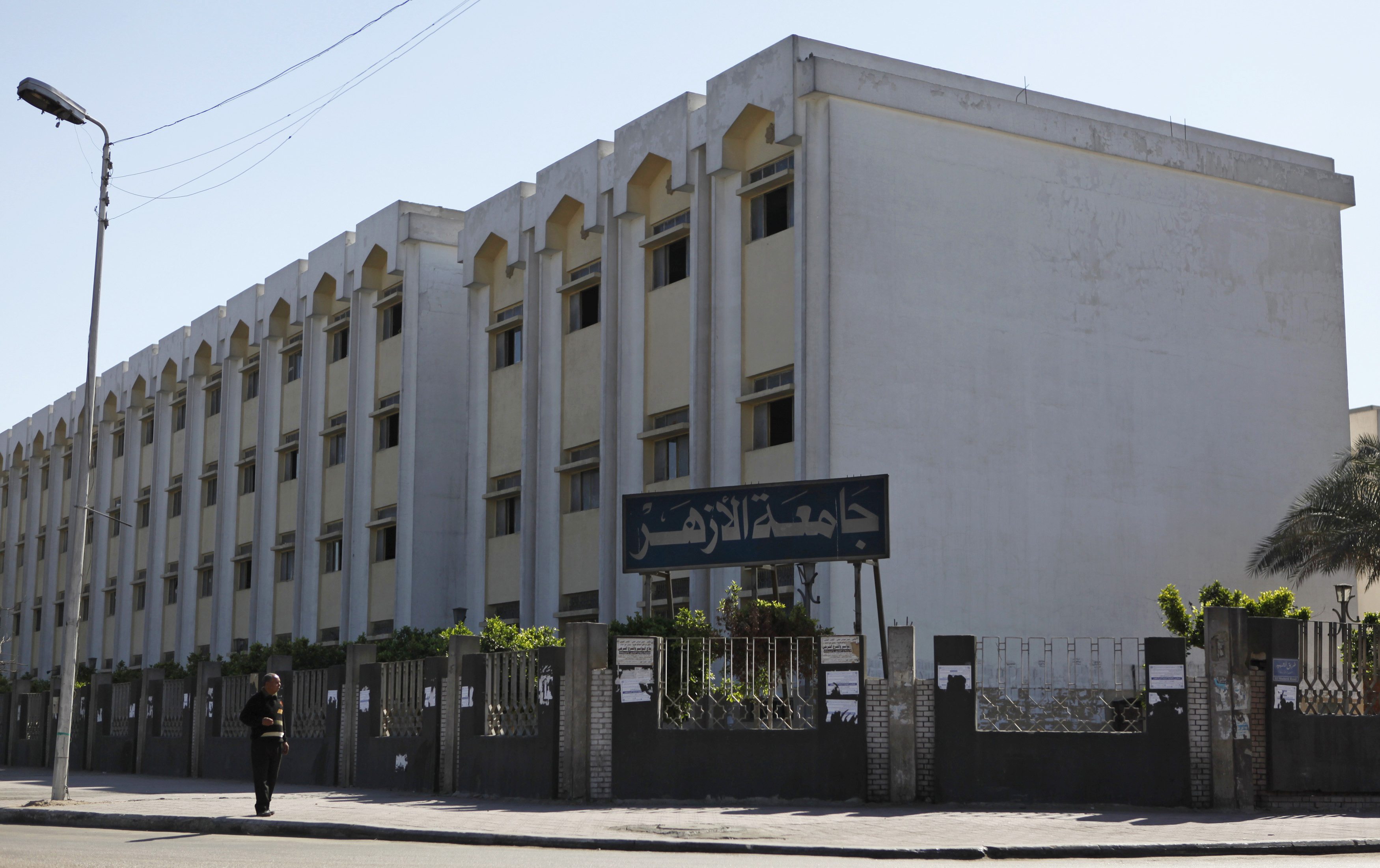Latest NEWS
- Aswat Masriya, the last word
- Roundup of Egypt's press headlines on March 15, 2017
- Roundup of Egypt's press headlines on March 14, 2017
- Former Egyptian President Hosni Mubarak to be released: lawyer
- Roundup of Egypt's press headlines on March 13, 2017
- Egypt's capital set to grow by half a million in 2017
- Egypt's wheat reserves to double with start of harvest -supply min
- Roundup of Egypt's press headlines on March 12, 2017
Egyptian students protest mass food poisoning at university

Al-Azhar University, founded in the 10th century through the endowment of a charitable trust, or awqaf, in Cairo March 19, 2013. Reuters/Amr Abdallah Dalsh
CAIRO (Reuters) - Hundreds of students from Egypt's top Islamic university protested on Monday to demand investigation and punishment of those responsible for a second mass food poisoning on campus this month.
Ninety Al-Azhar University students were hospitalized on Monday after eating at a campus cafeteria, the health ministry said. Earlier this month, some 460 Al-Azhar University students were hospitalised following a mass food poisoning on campus.
Students said the incident on Monday was a sign of neglect by officials at Al-Azhar, a thousand-year-old mosque and university in Cairo that draws students from across the Sunni world.
An initial investigation of the first food poisoning incident by the toxicology unit of Ain Shams hospital in Cairo blamed contaminated food.
"Those of you who are silent about this, why are you silent?" the students chanted on Monday. They blocked a road in front of university in the Cairo neighbourhood of Nasr City.
Protests on issues ranging from national politics to local grievances have become more common in Egypt since the overthrow two years ago of autocratic president Hosni Mubarak.
Ibrahim El-Hodhod, the deputy-president for educational and student affairs at Al-Azhar, said a committee had been formed to investigate the incident, state news agency MENA reported. El-Hodhod visited the hospitalised students on Monday, MENA said.
An emergency meeting by the university's management would be held on Tuesday to look into the case, MENA said.
Egyptian Prime Minister Hisham Kandil visited the hospitalized students on Monday and ordered the interior ministry to immediately investigate the mass food poisoning, according to a statement from his office on Monday evening. (Reporting by Shaimaa Fayed and Ali Abdelatti; Editing by Paul Simao)










